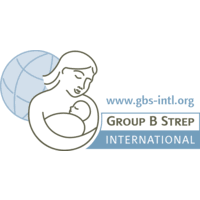
Tips for Balancing Nursing and Motherhood
As a woman with a successful nursing career, you know that there is nothing more important in life than the health and safety of your child. Whether you are expecting a new baby or you have a bunch of kids already running around, it is essential to cultivate balance within your life so you can successfully manage motherhood and your career while also protecting your own health and well-being.
Unfortunately, that is not always as easy as it sounds. As it is, minority women are already at risk of subpar medical care, as studies have shown that many minorities, including black patients, are not even prescribed the medication that their white counterparts are provided on a routine basis. Because of all this, you must take good care of yourself as a pregnant nurse or a nurse with children. Let’s talk about some great ways to create the balance you need during this exciting time in your life.
Inform The Hospital If You’re Pregnant
As soon as you discover that you are pregnant, you must inform the hospital, and one reason why is because it makes it easier for you and your employer to prepare for the future. Inform them of your due date so they know when you will be taking your leave and will no longer be available. A good tip is to save your paid time off (PTO) for when you take your leave as you may need more time than your maternity leave will provide.
The other reason you want to inform the hospital of your pregnancy is so that you are not put in any dangerous situations that could harm you or the baby. According to federal regulations, your employer must make reasonable accommodations for you if your job puts your pregnancy in jeopardy. For instance, if you typically work in an area where there is constant radiation exposure, you may want to ask for a transfer. Also, it’s a smart idea to stay away from any section of the hospital where patients are dealing with contagious infections so you aren’t put at risk. On that note, with COVID-19 still being a factor, you will still want to wear your mask during this time.
As all nurses know, hospital shifts can create their fair share of stressful situations, but stress can be very dangerous for pregnant women as it can lead to health risks such as high blood pressure and heart disease. To prevent unneeded stress, you might request to work in the recovery area or a department within the hospital with fewer high-risk patients. The same goes for when you return from maternity leave. You’ll want to tell them how you are feeling and potentially adjust your schedule so you can still support your family and your new baby at home.
Take Care of Yourself
If you are expecting, it is also important to practice self-care while you work so you stay healthy and protect the well-being of your child. It is essential to drink a lot of water during your shifts so you can stay hydrated and prevent fatigue. It is also important to have healthy snacks throughout the day to maintain your energy through long shifts. Almonds are a great go-to because they provide nutrients for you and they help to regulate the weight of the baby.
Many pregnant women also feel symptoms of morning sickness, and nurses are no exception. While it is not typically dangerous, you may experience nausea and vomiting, so if you are feeling sick, make sure to take a break. Also, eat plenty of chicken and bananas, which are rich in pyridoxine (vitamin B6), which has been proven to reduce the chance of nausea in pregnant women.
It is also important to know your limits, especially as you get closer to your delivery date. A work/life balance will be essential at this point. You may not have the stamina to work 12-hour shifts and that is okay. You need plenty of rest, especially if you have other children living at home. You do not want to neglect your family. If your company values you as an employee, they will be perfectly understanding of this modified schedule.
Change Your Profession
When you have children at home, the demands of working in a hospital may just be too much to allow you the quality time you need to have with your family. If you are in this boat, then it may be time for a career change that will still keep you in the health field but will also provide the time you need to be with your children. For example, you could become a school nurse where you can still provide healthcare but in a less stressful atmosphere. If you can become a nurse in the school where your children attend, that is even better.
There is also the opportunity to become a home health nurse. In this profession, you go to the homes of patients who are ill, elderly, or disabled, or otherwise lack mobility. The great aspect of this job, especially for working mothers, is that you can often set your own hours and you can choose to work with patients that live close to your home so you can tend to your children quickly in the case of an emergency.
For a chance to really be close to home, you could also opt to become an at-home nurse who stays at home and helps patients via a telehealth platform. Again, you can often set your own hours and be with your family all day. It is also great for pregnant nurses as it allows them to sit for their shift instead and avoid constant standing and walking.
If you are a nurse with children or you are expecting, follow the tips above and learn to balance work and motherhood. By giving your family and your patients equal care, you are making a real difference in your home and community, which should make you very proud.



